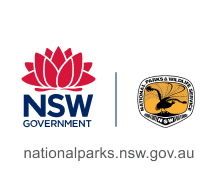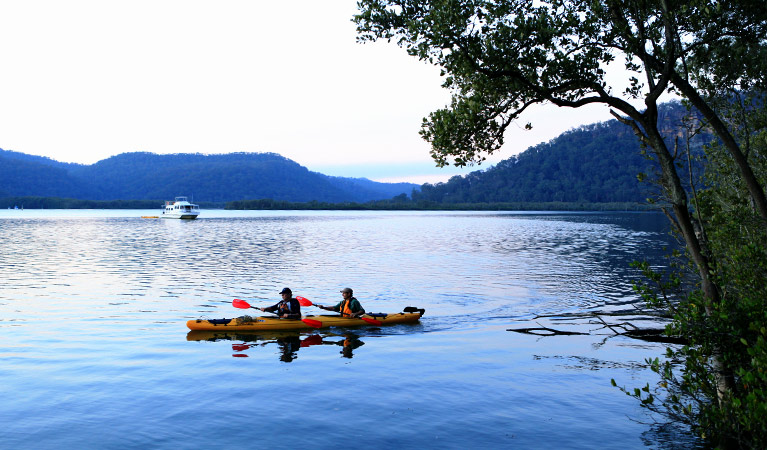Twin Beaches campground
Marramarra National Park
Overview
For a remote camping getaway close to Sydney, hop in your boat and make your way up the Hawkesbury River to Twin Beaches campground in Marramarra National Park, near Berowra.
| Camping type | Tent, Remote/backpack camping |
|---|---|
| Facilities | Barbecue facilities, toilets |
| What to bring | Drinking water, cooking water, firewood, insect repellent |
| Price | There are no camping fees at this campground but a $6 booking fee applies. |
| Group bookings | Book up to 15 people or 3 sites online. For larger groups, make a group booking enquiry. |
| Please note |
|
Tucked away in the northern outskirts of Sydney is Twin Beaches campground, a remote and peaceful part of Marramarra National Park that’s only accessible by boat. Drop your anchor and pitch your tent by the river for an authentic bush camping experience.
Spend your days fishing, swimming, paddling or boating on the calm waterways. Nearby you’ll find historic Bar Island with its old church ruins and cemetery filled with headstones of European settlers.
If you’re feeling energetic, take the boat upstream on Marramarra Creek to Marramarra Creek campground which is the starting point for the Marramarra Ridge to Smugglers Ridge walking track. It takes you across beautiful sandstone ridgetops down to the creek, where you can reward your efforts with a refreshing swim.
There’s plenty of opportunity for birdwatching at Twin Beaches campground, so don’t forget to pack your binoculars. You’ll see black cockatoos and white-bellied sea eagles soaring above the river. Goannas can also be found wandering through the campground, between the Sydney red gum and sheoak trees.
Map

Map legend
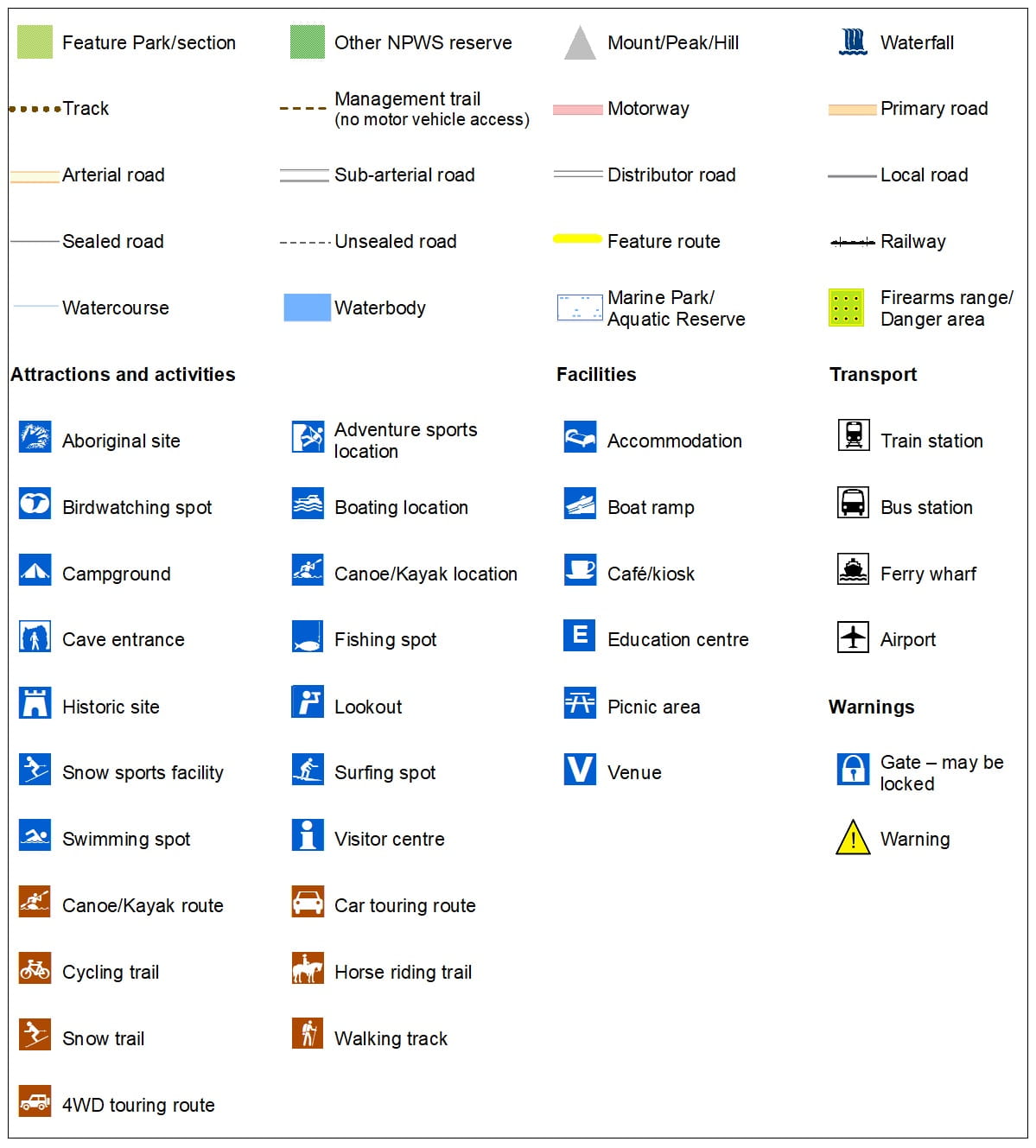
Local alerts
For the latest updates on fires, closures and other alerts in this area, see https://www.nationalparks.nsw.gov.au/camping-and-accommodation/campgrounds/twin-beaches-campground/local-alerts
Bookings
- National Parks Contact Centre
- 7am to 7pm daily
- 1300 072 757 (13000 PARKS) for the cost of a local call within Australia excluding mobiles
- parks.info@environment.nsw.gov.au
Operated by
- Lane Cove National Park Office
- Monday to Friday, 9am to 4pm.
- 02 8448 0400
- npws.northwesternsydney@environment.nsw.gov.au
- Lane Cove National Park, 2 Max Allen Road Lindfield NSW 2070
Park info
- in Marramarra National Park in the Sydney and surrounds region
Marramarra National Park is always open but may have to close at times due to poor weather or fire danger.
Visitor info
All the practical information you need to know about Twin Beaches campground.
Maps and downloads
Learn more
Twin Beaches campground is in Marramarra National Park. Here are just some of the reasons why this park is special:
Darug country
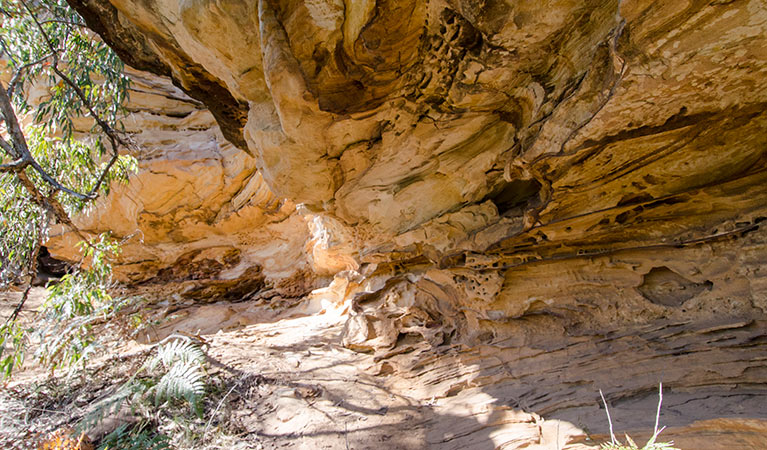
Marramarra is part of the traditional lands of the Darug Aboriginal people. Their use and respect of the land can be found in isolated corners of the park. The surviving Aboriginal sites, which provide the only indications of traditional life in the area, are of special importance to local Aboriginal communities. Cave art, rock engravings, grinding grooves, middens, scarred trees, and other occupational deposits and stone arrangements are all part of Marramarra.
Exploring the land
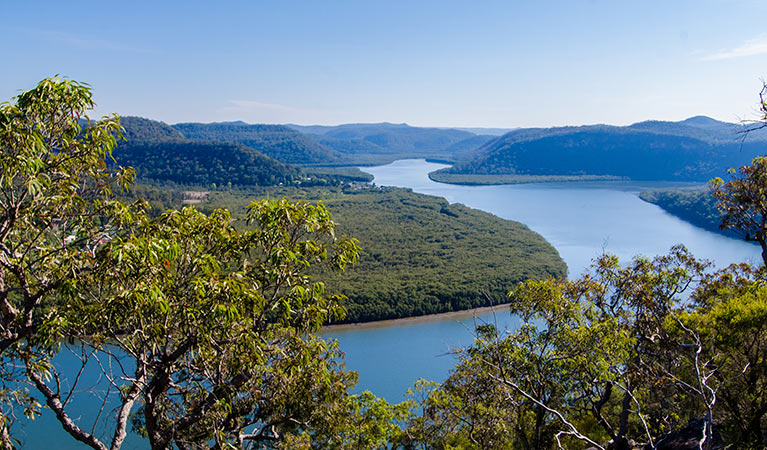
In the early days of the new colony, Hawkesbury River was a major communication route and supported an active river-based community. European exploration began as early as 1789 when Governor Arthur Phillip took his second trip up Hawkesbury River and camped at Gentlemans Halt. By 1884, there was a small community at Gentlemans Halt and a provisional school had been established; you can still see the foundations of a road and a wharf from this era. Other reminders of European historic heritage include remains of orange orchards along Marramarra Creek and the foundations of a hut, stone walls and a well at Big Bay.
Is it a bird?
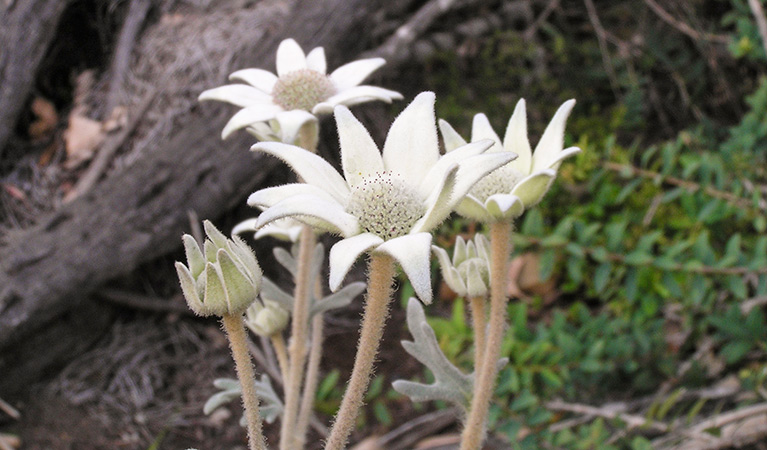
Marramarra is home to a great diversity of animals and birds, making it a great place for wildlife spotting and bird watching. You're likely to spot a white-breasted sea eagle, swamp wallaby, possum or kingfisher in your travels. If you're lucky, you might come across some of the more uncommon animals found here such as rails, gang-gang and glossy black cockatoos, and red-crowned toadlets.
- Canoelands Ridge walking track Canoelands Ridge walking track is a beautiful day walk near Hornsby and Sydney. See scenic Hawkesbury River views and native wildflowers along the way on this long hike.
- Marramarra Ridge to Smugglers Ridge walking track Discover the beauty of Marramarra, near Hornsby, on this day walk. Enjoy scenic views, historic heritage, colourful wildflowers and picnicking along the way.
Plentiful lands
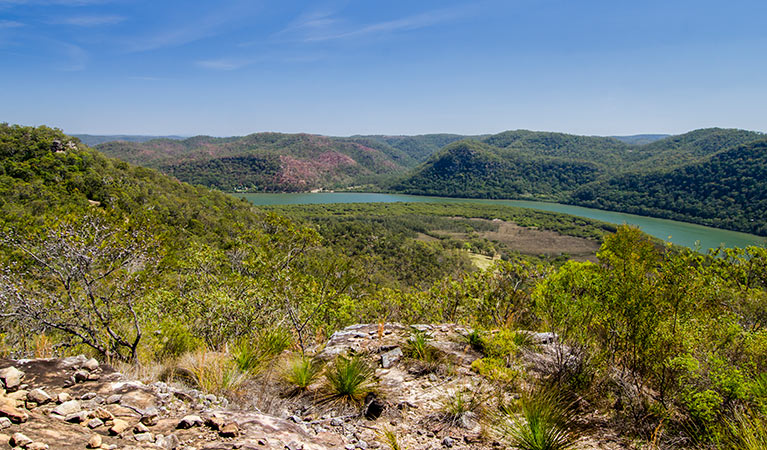
The sandstone ridges and deep gullies of Marramarra support a wide range of environments. Experience salt marsh and mangrove forests on the shores of Hawkesbury River, to tall open forest and ridge-top woodlands. In spring, the bush turns into a brilliant display of colour as the wildflowers burst in action. Discover the unique plant life and help preserve it – why not participate in the bush regeneration volunteer programs in the park?
- Canoelands Ridge walking track Canoelands Ridge walking track is a beautiful day walk near Hornsby and Sydney. See scenic Hawkesbury River views and native wildflowers along the way on this long hike.
- Marramarra adventurous journeys with YouthAdvance Fuel your sense of adventure on an exciting trip with YouthAdvance. You’ll learn navigation, teamwork and campcraft in beautiful Marramarra National Park, near Sydney.
- Marramarra Ridge to Smugglers Ridge walking track Discover the beauty of Marramarra, near Hornsby, on this day walk. Enjoy scenic views, historic heritage, colourful wildflowers and picnicking along the way.
